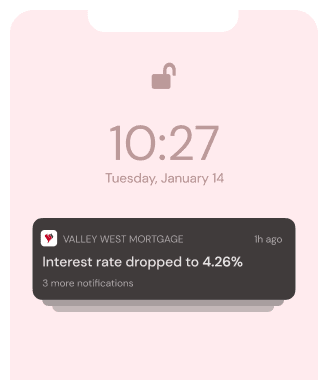Lender Paid Mortgage Insurance (LPMI) is a type of insurance used for borrowers who cannot afford to make a down payment that is at least 20% of the total loan amount needed for the house you want to buy. Despite the catchy name, Lender Paid Mortgage Insurance is not exactly paid by the lender. It is essentially paid by you, the borrower, in the form of one large payment up front or in a series of smaller payments that will be built into your mortgage rate. This of course means that you’ll have a slightly higher mortgage rate than if you had have put 20% of your total loan amount down (but that’s small potatoes compared to paying a lump sum large enough to cover whatever the lender determines will insure your home).
For a mortgage lender, the idea of investing in a borrower who cannot make a down payment of at least 20% on his or her home is somewhat risky. The insurance protects your lender from losing money, in case you default on your loan. If you were to default, the lender would be repaid a portion or in some cases, the total amount of the loan through the insurance that was purchased. The percentage of what will be returned to the lender is dependent upon the type of insurance that they choose to get. Also, since mortgages with less than a 20% down payment require insurance, LPMI saves you money, versus using Private Mortgage Insurance, or PMI.
LPMI is through your lender, therefore your lender would include your payment for the LPMI in your monthly mortgage payment. PMI on the other hand is not offered through your lender, you have to go out and get it yourself. So you’ll be paying for your insurance premium on top of your monthly mortgage rate as two separate charges rather than just one. It’s like (and my ladies will understand this) going into Payless and getting two pairs of shoes. When they have a buy one get one (BOGO) going on, you buy one pair and get another pair at a discounted price just for buying the first pair. Whereas if you bought one pair of shoes at Payless, and then another pair at JC Penny, you’d be paying full retail price for both shoes. It’s like you’re paying less for Mortgage Insurance because you are purchasing it through your lender rather than purchasing it out right from an outside insurance company. You’re basically getting the insurance cheaper because you’re already doing business with the lender rather than doing business with the lender and with a separate insurance company. Use two companies, pay two fees. Use one company, pay one fee.
Using your payment(s), the lender then purchases mortgage insurance on your home. And just so we’re on the same page, allow me to clarify something that is very important. By mortgage insurance, I don’t mean the kind of insurance that protects your home in the unfortunate event that your house were to be damaged by a flood or be conquered by savage barbarians, a fire, hurricane, or any other unforeseen disaster, natural or otherwise. That type of insurance is called Hazard Insurance and it must be purchased by you the borrower.
Before asking about receiving LPMI, think on these few things:
As is the case with most potentially credit changing transactions, like buying a car, or applying for a credit card, your FICO credit score will be a determining factor in whether or not you qualify for LPMI (check back for my article about FICO). What score is considered a good credit score will be up to the lender, as the lender is the one that is taking the risk. So be sure to keep your credit in good standing.
Also, think about the life of your loan. A fixed mortgage rate does not change throughout the life of the loan. So if you have your LPMI included in your rate, you will be paying that (somewhat higher than average) rate for the entire life of your loan. In other word, if you’re applying for a 30 year fixed mortgage, LPMI may not be the best option. However, if the life of your loan is relatively short, say ten or fifteen years, LPMI may be a good way to go.
Also remember that you can get tax relief for paying LPMI. So the cost of your LPMI can be deducted when you are doing your taxes. (Please remember that I am not a tax professional and this is something that would be wise to discuss with your tax preparer before making a final decision.)
If you are considering buying a home or you are pondering over a possible refinance, keep Lender Paid Mortgage Insurance in your think tank. Ask your lender about it, and know your options. Just remember that LPMI can be a great financial possibility for you by helping you to save money throughout the life of your loan.

Instant notifications for your scenario
Let's do it⏰ Your offer will be delivered to your inbox in less than a minute!